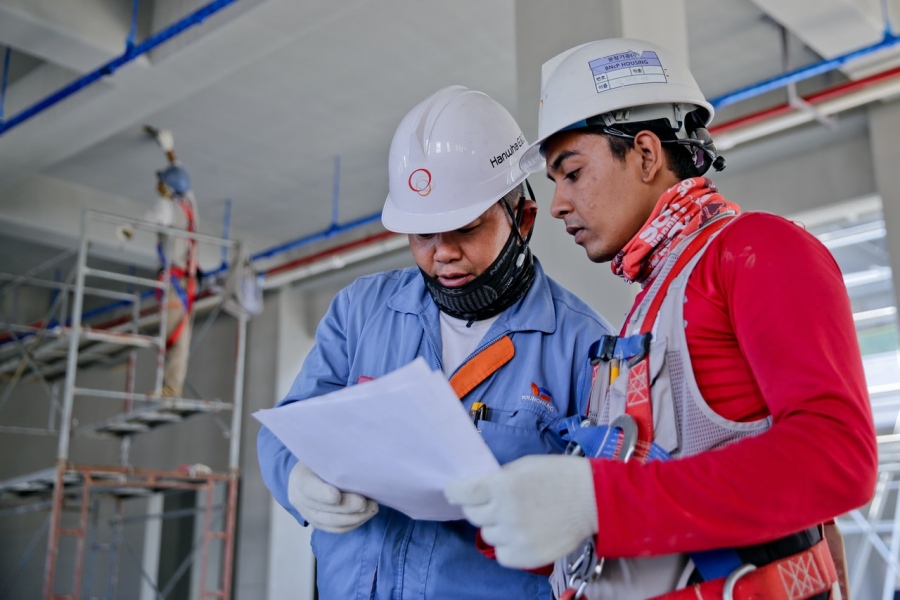Late payment contributes largely to financial stress, especially for small to medium-sized contractors. It is a stifling factor that stagnates projects and impedes productivity. This is because when money ceases to flow smoothly down the supply chain, work is put on hold as it gets harder to meet financial agreements, pay workers, and fund investments that will ensure growth.
Construction contractors may disagree on many fronts, but a common problem that they share is the problem of late payments. Certainly, the issue cuts across every field and industry, but there is a particularly severe situation in the construction industry.
Why are Late Payments the Norm in Construction?
1. Insufficient Funds or Budget for a Project
This is a problem common to both small and medium-sized contractors. When a client is unable to commit sufficient financial reserves but still goes ahead to acquire a contract for a project, the result is a pattern of late payments on every level of the project chain.
In the case of governmental contracts, sometimes a contract is commissioned even when funding is not yet acquired. The most persuasive reason for embarking on this journey is the assurance that the government will never go out of existence. This suggests that the contractors will get paid in the end, regardless of how much time is spent waiting.
For this reason, contractors end up having no other option than to work on credit. Many zealous contractors are left with no option but to borrow capital required for a project so that work can progress on the site. If reimbursement takes longer than necessary, then this becomes a major financial problem.
2. The Multitiered Levels of Contributors on a Project
The problem of late payments within the construction industry is largely rooted in the ranking nature of the billing process. A contract is awarded by the client to the principal contractor. The contractor relies on a number of subcontractors who rely on suppliers in turn. The payment hierarchy follows this pattern and the clients at the top of the payment chain often require the project to be completed before payments can be made.
Construction projects often last a long time; the high advance costs make it difficult for contractors to pay subcontractors if they have not been paid yet. Principal contractors may run out of capital and have to wait for the payment from clients before they can pay their suppliers and subcontractors. This means that everyone in the constructing process has to work and wait for the completion of the whole project before getting paid. Hence, transactions for labor and supplies are often done on credit.
For example, a subcontractor carries out certain services on credit for a contractor, while utilizing supplies and labor on credit. It is a system of interdependent payments largely built on trust and legally binding contracts.
3. Bidding Ridiculously to Beat the Competition
A bidding process is instrumental for selecting a contractor or subcontractors. In this process, contractors tender proposals that offer their services to a client at a competitive price.
When a client or government agency requires goods or services, it is quite common for them to put out a request for proposal (RPF), encouraging contractors to send in their best bids.
Frequently, due to the competitive nature of bidding, the contractors offer quality service for the lowest price possible in order to appeal more to their desired client. After being selected for the contract, they find it hard to make good on their promises and may have to renegotiate with their clients. In these cases, dissatisfaction is rife because contractors may convince the clients to go for cheaper materials in order to cut costs, while the clients may consider the work inadequate and delay payment.
4. Miscommunication and Misunderstanding
It is true that many factors contribute to the issue of late payment; however, one common factor in many cases is a lack of good communication.
Now, at the conclusion of a satisfactory project, a contractor might experience a delay in payment. First, consider if there has been proper communication with the client for the duration of the project. It is necessary to be vocal about expectations and timelines when embarking on a new project. In a situation where a contractor has been unclear about payment parameters, late payment is likely to occur due to miscommunication.
Many times, construction contracts lack provisions for unforeseen situations that may occur over the course of the project. Therefore, when a service outside the scope of the contract is provided but the contract does not affirm who should bear the additional expense, it may lead to payment dispute if the client refuses to pay.
Finally, miscommunication can be as simple as just misunderstanding the terms of an invoice. A contractor may expect immediate processing, while the client assumes there is a 30-day payment window.
How to Effectively Avoid Late Payments in Construction
1. Address late payment immediately
After contractors have provided satisfactory service, it is necessary to address their expectation to be paid in a timely manner. Delays in payment should not be allowed to stretch out for longer than necessary; clients should be contacted formally via written notes to find out the reason for any delay. Very often, it might be a misunderstanding that is easily corrected.
2. Practice good communication
Communication is necessary to promote client-contractor relations and discourage late payments. Terms and conditions should be discussed and clearly stated in the contract.
The contract should show how much work is to be done, the payment to be made, and the legal consequences of violating any aspect of the contract. It is important to make provisions for extra incurred charges and state who should bear the responsibility for them.
3. Make sure that invoices go out on time
Send invoices out on time. They should be well written, clear and free of any confusing mistakes. It is important that the invoices contain detailed instructions on how payment should be made and when payment is due.
4. Adhere to the U.S. Prompt Payment Act (PPA)
This act protects contractors and subcontractors from late payments on governmental projects. Most states have their own prompt payment laws, but for federal government projects, invoices of the principal contractors must be paid within 14 days for progress payments and within 30 days for final payments. Failure to pay within stipulated time incurs interest on the delayed payment. This act protects all ranks of workers in a federal project, including contractors, subcontractors and suppliers. Payments from the principal contractor to other lower tiers have a seven-day window from the day the prime is paid.
5. File a mechanics lien
A mechanics lien legally documents the rights of the filing party to demand compensation for unpaid work. Contractors, suppliers or subcontractors who are victims of nonpayment can file mechanics liens over the service or materials they made available on a property.
For example,if a client refuses to pay after construction, a mechanics lien in California allows the contractor to make a claim on the property due to unpaid work. If the contractor doesn’t receive payment still, the lien will be enforced, leading to foreclosure of the property. The profits from the sale will be used to pay off the debt.
Conclusion
On some occasions, late payments are necessary on the part of the parties at the top of the project chain because it can help ensure that a project is properly completed.
It may take a while to truly change the payment system within the construction industry, but as discussed, there are a number of ways to avoid or manage the occurrence before change comes.
This is a guest post from Handle.com



